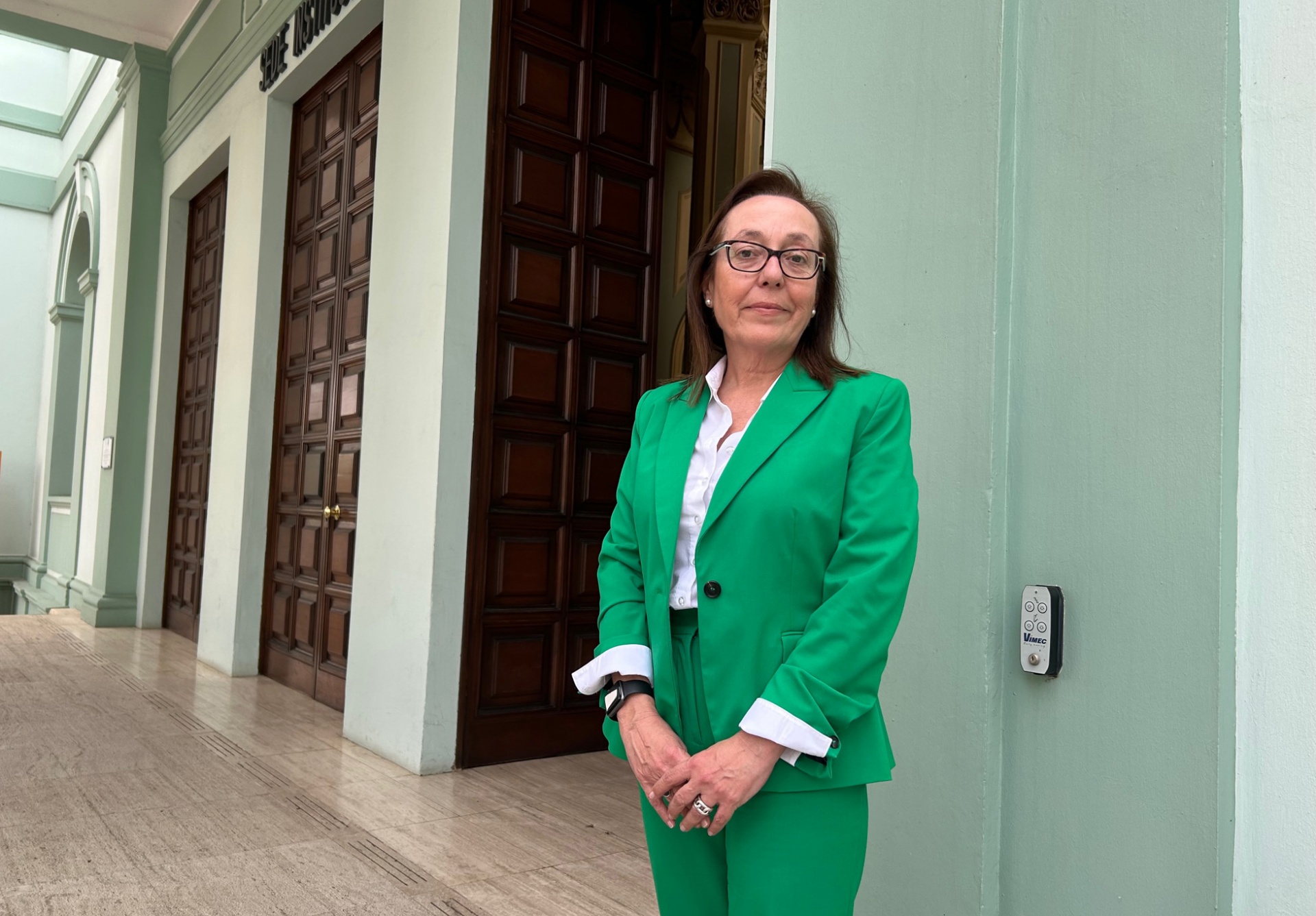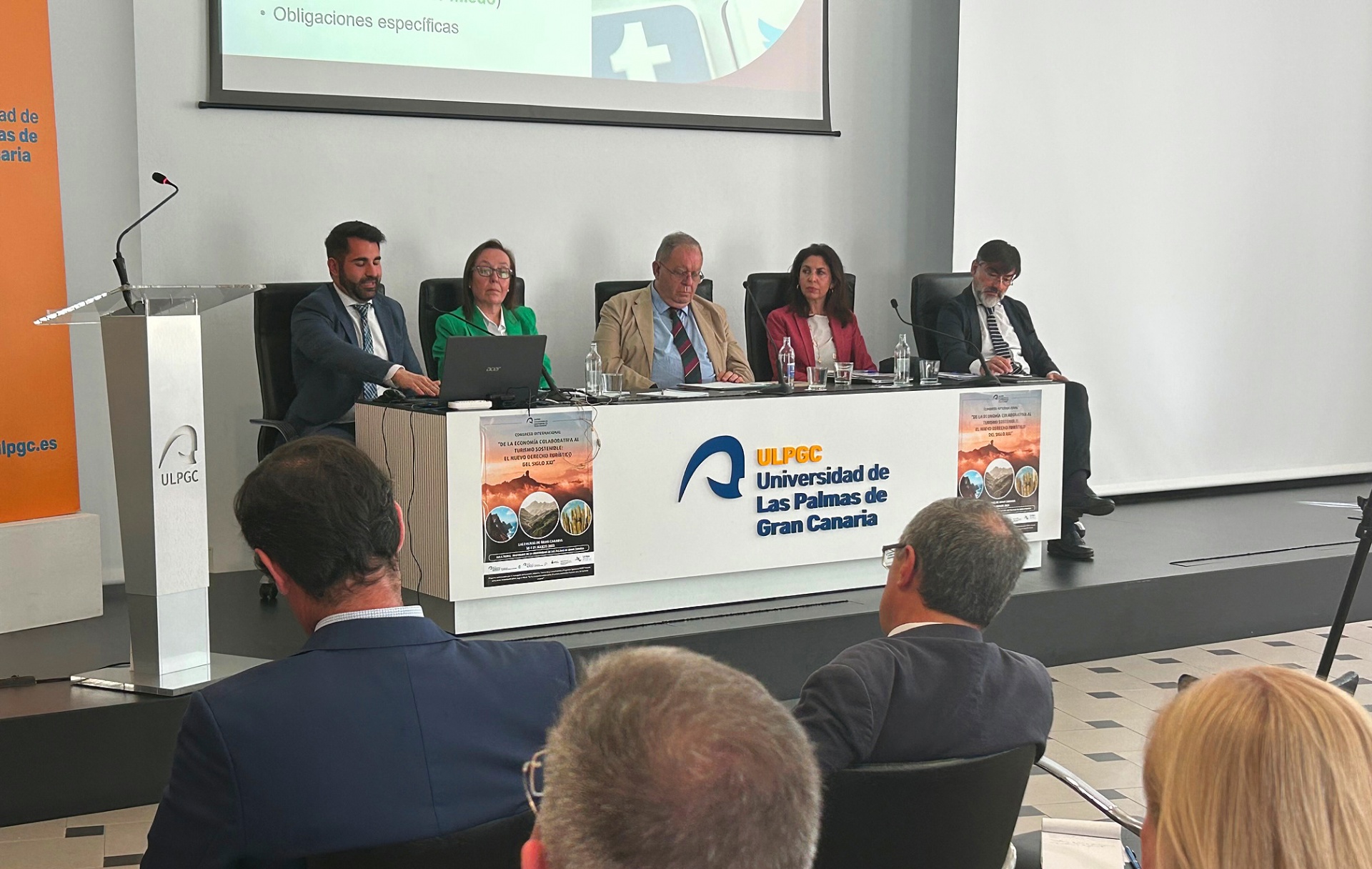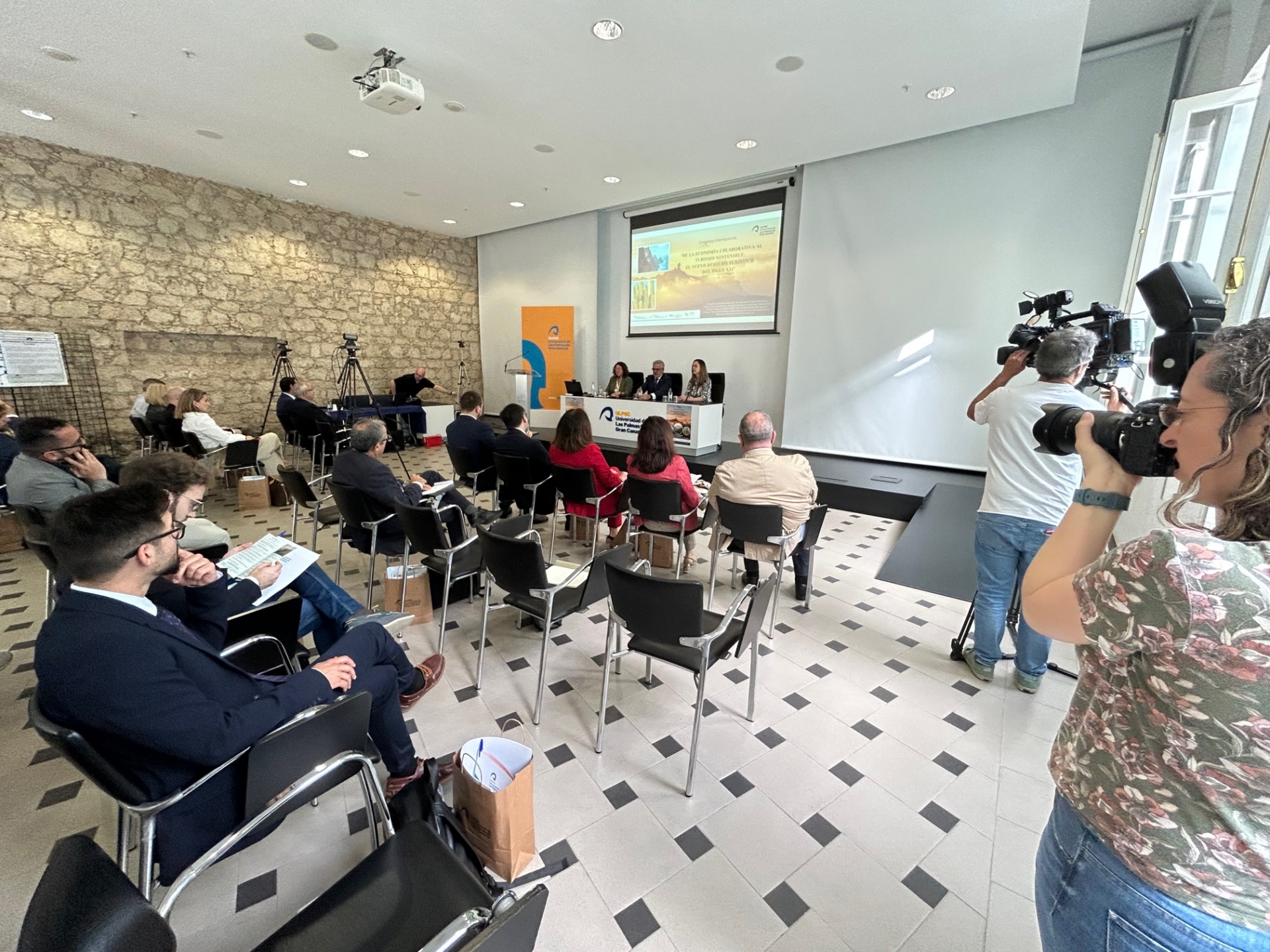This week the ULPGC is holding the International Congress "From the collaborative economy to sustainable tourism: The new tourism law of the XXI century" is taking place in the capital of Gran Canaria this week.
Greater transparency in digital holiday rental platforms, through the harmonisation of the registration of hosts or service providers, will help users to have greater legal certainty when operating on them.
This is one of the innovations of the new European regulation, which replaces the now obsolete Directive on short-term rental platforms, dating from 2000.
This was explained by Patricia Benavides, Professor of Commercial Law at the University of Malaga, during the opening ceremony of the International Congress: "From the sharing economy to sustainable tourism: The new tourist right of the 21st century", organised by the Tourism, Land Management and Environment Group (TOTMA) of the University's Institute for Research on Aquaculture and Sustainable Marine Ecosystems (ECOAQUA) and held this week at the Rectorate of the University of Las Palmas de Gran Canaria.

Among the requirements of the new EU regulation, which is expected to be approved this year, is the single registration of hosts on digital tourism platforms and the inclusion of the administrative licence number of the holiday home, which will help reduce abusive practices towards users and unfair competition. Hosts will also have to inform the administration of the number of people they host and the income they receive, which will help to eliminate illegal rentals and false offers, with a unified system that works across borders.
According to Patricia Benavides, the proposal for a regulation on data collection and exchange was published on 7 November and is progressing quite quickly. The European Council of Regions has given the green light to the European Commission and asked the European Parliament to adopt it, so we will soon have a draft regulation," she said.
Once approved, platforms will have to design their interface to show a range of information from suppliers to users, and will exclude any lease that is not of short duration, i.e. any lease that exceeds one year.
The International Congress: "From the sharing economy to sustainable tourism: The new tourism law of the 21st century" was inaugurated this morning by Lluís Serra Majem, Rector of the ULPGC, Inmaculada González Cabrera, director of the congress, professor at the University of Las Palmas de Gran Canaria and head of the TOTMA group, and Beatriz Fonticiella Hernández, secretary of this meeting.
"We live in a digital world when it comes to the organisation of our trips and the traces we leave of our experiences. Hiring is mostly done by users through online platforms, so the operation must be fully controlled," said the Rector of the ULPGC, who pointed out the importance of including environmental challenges in the future regulation of a sector that is constantly growing and "that is essential and unique to experience and connect with local culture," he added.

The first panel of the Congress, on 'Consumers, entrepreneurs and intermediary platforms', was chaired by Juan Carlos Sáenz, Professor of Commercial Law at the Universidad Politécnica de Navarra, and featured Nuria Fernández, Professor of Commercial Law at the University of Alicante, Rafael Lara, Professor of Commercial Law at the Universidad Politécnica de Navarra, Eugenio Olmedo, Professor of Commercial Law at the University of Malaga, and Patricia Benavides, Professor of Commercial Law at the same university.
As Eugenio Olmedo explained in his speech, the new legislation will not only protect consumers, but will also be crucial in protecting the hosts and business people who use these digital platforms as intermediaries, avoiding problems of unfair competition, establishing uniform and clear criteria for the classification of advertisements on their sites, and prohibiting sales linked to the offer of ancillary goods and services, which can always be included in the advertisements, but with detailed information


